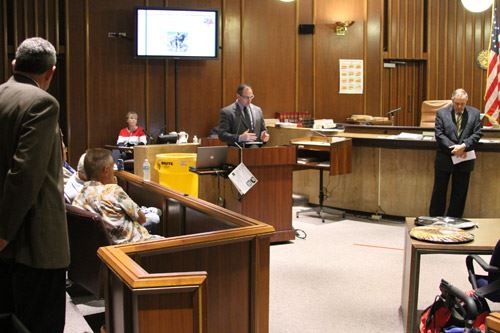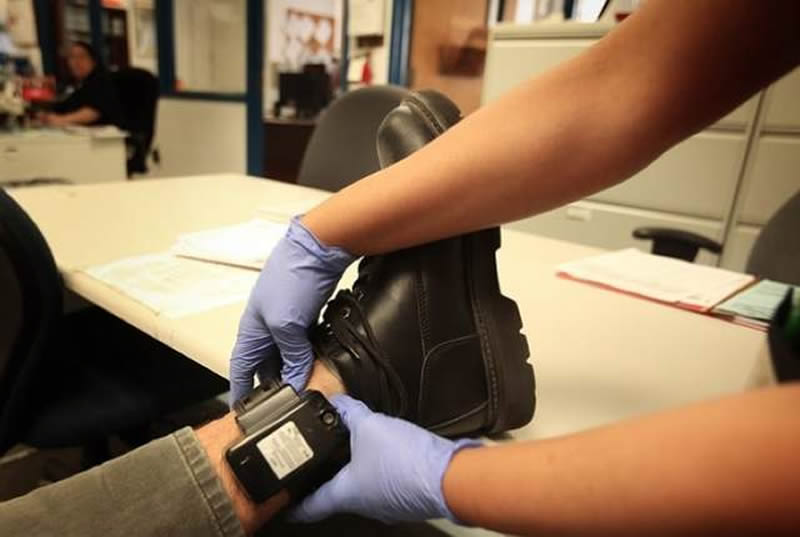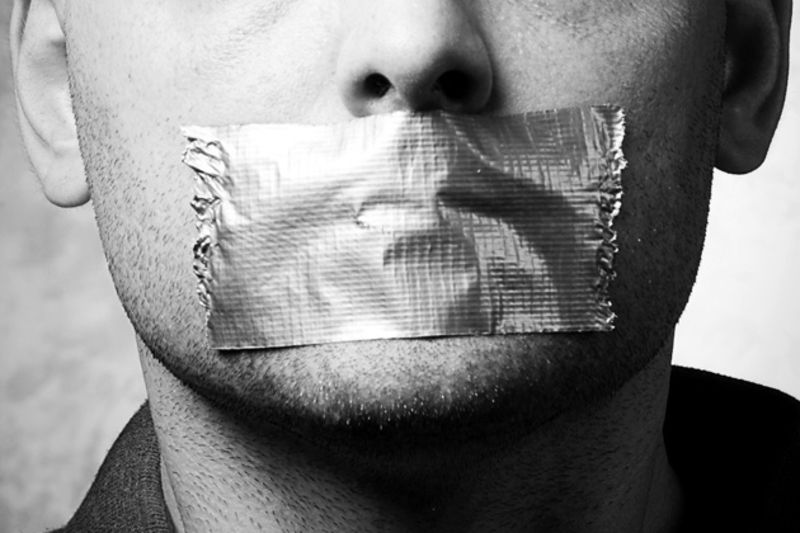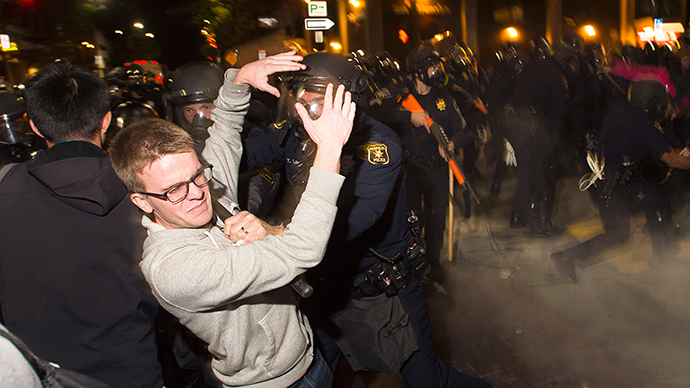Hearing the phrase "restriction of freedom", the first thing that most of us will imagine: handcuffs, bars and a prison cell. In fact, this concept is not so drastic punishment for breaking the law. Restriction - not imprisonment with complete isolation from society for a certain period of time, according to the article of the Criminal Code applicable to the convict. This is just a punishment in the form of restriction of movement beyond the borders of the territory defined for each of them.
Similar concepts
It is often difficult for a person who is far from criminal law to understand what is behind house arrest, serving a sentence in a colony (and there are several of them), to be placed in an educational or medical institution, really difficult. All of them in one way or another affect the restriction of the rights and freedoms of a citizen. But everyone has their own, special, degree of punishment. They even refer to different legal codes. Some are criminal, others are criminal procedural. So, “house arrest” is a definition from the Code of Criminal Procedure. And it is not a measure of punishment, but a measure of restraint, which can also be attributed to "release from arrest on bail" and "detention". They are appointed for minor crimes and in accordance with certain features, for example, family circumstances, age, state of health and other extenuating conditions.
The punishment in the form of imprisonment includes the placement of the convicted person in:
- colony settlement;
- medical correctional institution;
- jail;
- educational colony for juvenile delinquents;
- correctional colonies of general, strict or special regimes.
Punishment by restriction of liberty is also applied for violation of the law of insignificant or moderate degree. This is the “youngest” of all existing measures of influence for certain legal misconduct.
The new edition of the article was put into effect in January 2010. According to her, a convicted person can serve his sentence at his place of residence, go to work or study, meet with friends and relatives. Naturally, certain restrictive frameworks exist. They are developed by the employees of the penitentiary inspection for each individual and have their own personal characteristics, but there are common features for everyone:
- Do not leave the house at certain hours, usually at night;
- not to leave the borders of their settlement without special permission from the UII;
- without notification of supervisory authorities, do not arbitrarily change jobs, studies and residences;
- Do not attend concerts, rallies, meetings and other events of mass crowds.
By the will of the judge
As can be judged from the foregoing, not a single criminal would refuse to punish a criminal offense in the form of a restriction of freedom at the place of his main residence. However, not every one of them can even hope for such relief from the law. This type of punishment is not applied so actively in our country as a basic measure. And he is appointed only for crimes for which the term of imprisonment does not exceed four years. He is awarded for violations of the law, according to the Criminal Code, small and medium gravity. But as an additional measure to the basic restriction of freedom can be met quite often. It is assigned a “plus” to real imprisonment from 6 months to 2 years and is carried out only after serving the first part of the sentence.
The duration of the appointment of the second part depends on the totality of all mitigating and aggravating circumstances that were identified during the investigation of the crime. When passing a sentence, the judge takes into account both of them. For example, if a person first broke the law, he sincerely repented, was involved in a criminal scheme besides his desire or out of ignorance, he is the only breadwinner in the family who has elderly parents, a sick wife, several young children on his hands, then he has every chance to hope for the indulgence of the court and the imposition of punishment in the form of a restriction of freedom. With the introduction of amendments to the Criminal Code and the Criminal Procedure Code in 2010, the Russian Federation was supposed to slightly improve the statistics on the number of criminals in the colony, unload correctional facilities, and reduce budget costs for their maintenance in prisons.

But the restriction of freedom in our country is rarely imposed as the main punishment, although more than 200 articles of the Criminal Code imply its application. Perhaps this is due to an excessively high relapse rate. There are very few people who have just one criminal record. In addition, a bias against law-breakers once is formed, and the slightest violation on the part of the liberated entails the use of more stringent sanctions for them for the same crime than those who did not previously attract the attention of police officers.
Theft is a priority
But for a number of articles, for the first violation in your life, you can get by with conditional punishment or restriction of freedom. Naturally, in the presence of significant extenuating circumstances. In a special section of the Criminal Code, part of the articles, beginning with the 105th and ending with the 271st, implies the application of restrictions on human freedom. Most often it is used when a court considers a crime under part one of Article 158 - “Theft”. There are thefts that bring minor damage to the victims. In addition, quite often the identified criminal manages to negotiate with the victims before the trial, to compensate for damage, including moral, because in some cases the case does not even go to trial because of the “reconciliation of the parties”. But even in the absence of voluntary coverage of losses, the suspect in the commission of such a crime has every chance to stay at large.
However, this type of punishment does not apply to a certain category of citizens. These include:
- military personnel;
- pregnant women;
- minors;
- visitors who do not have Russian citizenship;
- persons without a fixed permanent residence;
- citizens of another state.
The circumstances of the application and the terms of restriction of liberty in relation to those to whom the use of this measure of punishment is permissible are set forth in Article 53 of the Criminal Code and the first two parts of Article 50 of the Criminal Executive Code of the Russian Federation. They also set out all the requirements for convicts during the entire period of their stay under police control. There are few necessary conditions; all of them are easily feasible if a citizen has a desire not to burden his position.
There are hopes, but they are void
Articles of the Criminal Code, which give grounds to violate the law to hope for leniency of the servants of Themis, are included in a separate part of the Criminal Code of the Russian Federation. Punishment by restriction of liberty can be seen in several sections of crimes, including those committed against the individual, public security, state power and others. The maximum term of imprisonment for some of them is only 2-4 years. And as a minimum measure of punishment can be corrective or forced labor, a fine. So, in the first part of Article 109 of the Criminal Code “Causing death by negligence”, the maximum period of stay in the colony is 2 years. However, a judge may limit himself to a less sparing type of punishment, including a 2-year restraint of liberty. Serving of sentence in accordance with the second part of Article 109 shall be increased by 12 months. But among the possible types of influence on the criminal, all of the above measures also appear.

To become the cause of a person’s death and practically not bear any punishment for it, except for 2 or 3 years not visiting crowded places, not leaving home at a later time and not leaving your municipality without permission is too humane a form of punishment for human life . The percentage of imposed restrictions on freedom for such acts is extremely low. Especially if the number of victims is more than one person. You must be a crystal clear citizen in order to earn such an easy form of punishment.
Or take, for example, violations of the law, the punishment of which is provided for in Chapter 18 of the section “Crime against the individual” - “Crime against sexual inviolability and sexual freedom of the individual”. The most common type of crime is rape. Among the possible penalties is restriction of liberty for up to 3 years. Often you can meet her in court sentences as the main measure? The answer is obvious. But for a deliberately false message about an act of terrorism (Article 207) - the chance to avoid the bars is great enough.
Under the hood
It is unlikely that one will be able to walk free without any control on the part of the employees of the criminal-executive inspection, while serving a sentence even at their place of residence. The conditions for restricting freedom, in addition to fulfilling the requirements not to leave the borders of one territory, also imply personal communication between the convict and the supervisory services from 1 to 4 times a month. Each has its own number of mandatory periodic registration with a specialized state body that oversees criminals. In some cases, it can be increased if it is necessary for inspectors to carry out educational work in relation to their wards. In addition, convicts must appear at the UII upon request to give some explanation about their stay in non-specified places or to receive new directives from the controlling organization.

If necessary, to temporarily leave the borders of your locality to meet with relatives, pass exams or on a business trip, you must obtain the appropriate permission for the voyage in advance. The punishment in the form of restriction of freedom implies some concessions under this clause of the mandatory conditions for observing the regime. However, the convict should remember that in most cases, such permission is given only for one round trip. To carry out the following, even for the same reasons and in the same place, a new approval of inspectors is required. They must be informed of all possible changes in their lives, including changes in work, study, place of residence. Notify about the upcoming change of circumstances should be no later than a week before the expected event.
Two in one
Serving at the place of residence criminal punishment - restriction of freedom became possible after the new version of the corresponding article of the law was introduced in January 2010. Previously, criminals were assigned a certain territory of the hostel type, a kind of correctional center, where they should return every time after visiting a place of work or study. Of course, round-the-clock surveillance in these institutions existed, but was not as total as in the security colonies. Meetings with relatives were also not limited to particular severity. There were many concessions, but they can’t even be compared with staying at home. But even when serving a sentence at their place of residence, many manage to not only violate the regime, but also commit new crimes and thereby complicate their conditions.
First you need to figure out what the violation of the regime is. Firstly, getting used to freedom, the main difficulty of which is regular registration with the penitentiary inspection, many people over time begin to neglect, intentionally or unintentionally, the observance of this condition of punishment. Naively believing that a couple of visits to some crowded events will also not harm anyone, they violate this requirement. As for going outside the agreed territory without permission - a clear violation. A trip with the approval of the inspectors, but returning later than the agreed deadline is also a punishable misconduct. The restriction of a person’s freedom defined earlier in the form of punishment, with a systematic violation of his regime, can turn into a real prison term. The unserved calendar period of punishment will become somewhat shorter, but behind bars, as a day in a colony is equated to two in the wild.
Suppose, before changing the measure of influence on the offender, he had to wait 4 months of punishment with restriction, and he received the long-awaited full freedom. But after reviewing the sentence and replacing him with a real term, he will be forced to go to jail. But not only for 4, but for 2 months. The term is shorter, but here are the conditions ... And if he also commits a new crime, then the term of punishment, most often in the form of complete imprisonment, will already depend on the totality of both sentences - not served and new.
Right to liberties
In addition to the concept of human freedom as a whole, in the form of detention, there are a number of other freedoms, not criminal procedural, but constitutional. Almost everyone knows one of them. This is freedom of speech. In the Constitution, in article 29, she received the designation as "The right to freedom of thought and speech." The main document of the state contains the definition and regulation of personal, socio-economic and political rights and freedoms of a citizen. There are about 20 of them. And, of course, the same Constitution lists the reasons why the restriction of rights and freedoms can be applied to each of us for a certain time or at all.

So, with regard to thoughts and words, it is allowed not only to have them, but also to express them in an oral or other existing form of presentation. However, if a spoken, written, drawn, expressed hidden or explicit agitation or propaganda is found that carries the danger of separation of society, awakening in people of racial, social, religious or political hostility, then immediately there will be a restriction of the rights and freedoms of the person and citizen who allowed unacceptable in his statements society of thought. Similar actions on the part of legal structures will follow if other rights specified in the Constitution are exceeded.
In addition to the above, the citizens of our country are endowed with the rights: to life, protection of honor and dignity, personal inviolability, holding public events, free movement, private property and many other vital aspects. But the same Constitution also defines unacceptable violations of the privileges vested in it.
Prohibition of the right
The restriction of human rights and freedoms occurs when a crime is proved by the investigating authorities against any of the clauses of the Constitution, as well as other legislative acts and regulations. And no matter in relation to whom they were committed: one person or a whole people. A special response will have to be held for a crime against the state. The degree of the application of punishment is defined in Article 55 of the Constitution. It says that a person can be deprived of his rights and freedoms only to a certain extent. What matters here is not so much the punishment of one as ensuring the safety of everyone else. So, several articles of the country's main legal document at once determine in more detail what exactly these restrictions may be and at what stage of the proceedings legal structures come into effect, since there are crimes against rights and freedoms, the punishment for which reaches the highest measure.

In addition to the internal document of the state, there are international ones that regulate the use of rights and freedoms endowed with a person after his birth. One of them is the Covenant on Civil and Political Rights. As in the Constitution of the Russian Federation, this international document prohibits certain actions that go against the privileges granted. They can be expressed in anti-humane and immoral acts, propaganda of military actions, inciting racial or religious hatred and hatred, incitement to violence. Such actions are unacceptable and punishable by restriction of rights and freedoms. Similar penalties are provided for in the Covenant on Economic, Social and Cultural Rights. They are aimed at protecting the general well-being of any democratic society. Ensuring security allows the deprivation of the rights and fundamental freedoms of everyone, even the European Convention for the Protection of Human Rights. These restrictions are provided for in part two of Article 11 of the document.
Regulation obliges
, - . , . 56 . . . , . , .
, . . , , , , . . , , .
. , . , . . , , . .
But back to the Criminal Code and the concept of “Restriction of freedom” in imposing a measure of punishment for breaking the law. As already mentioned, all the articles on which the application of this sanction to convicts is permissible are set out in a special part of the Criminal Code. It consists of 6 sections and 19 chapters. The serial number of articles inscribed in this part is in the range of 105-360. If the offender is charged with one of them, he can hope that he will be led, and under his article a fairly light punishment is permissible, allowing him to serve his entire term at home. But as also said, this happens infrequently and is due to many conditions.

Considering this measure of punishment more biased, it can be called a kind of “gift for criminals,” since in addition to the already light punishment, the law allows some more concessions to those sentenced to restriction of liberty. For example, failure to appear for registration with the Criminal Executive Inspectorate. It needs to be passed to someone once a month, and to someone four. If during these 30 days the convict did not appear in the UII, but they managed to establish and maintain a telephone connection with him, the inspectors of the institution have the right not to submit a submission to the court for toughening the punishment for a particular citizen. And if he complies with all the requirements of the supervisor, he can claim to be encouraged. It can be expressed either in certain concessions of the regime, or in the reduction of the remaining period. Whatever you say - a special punishment.